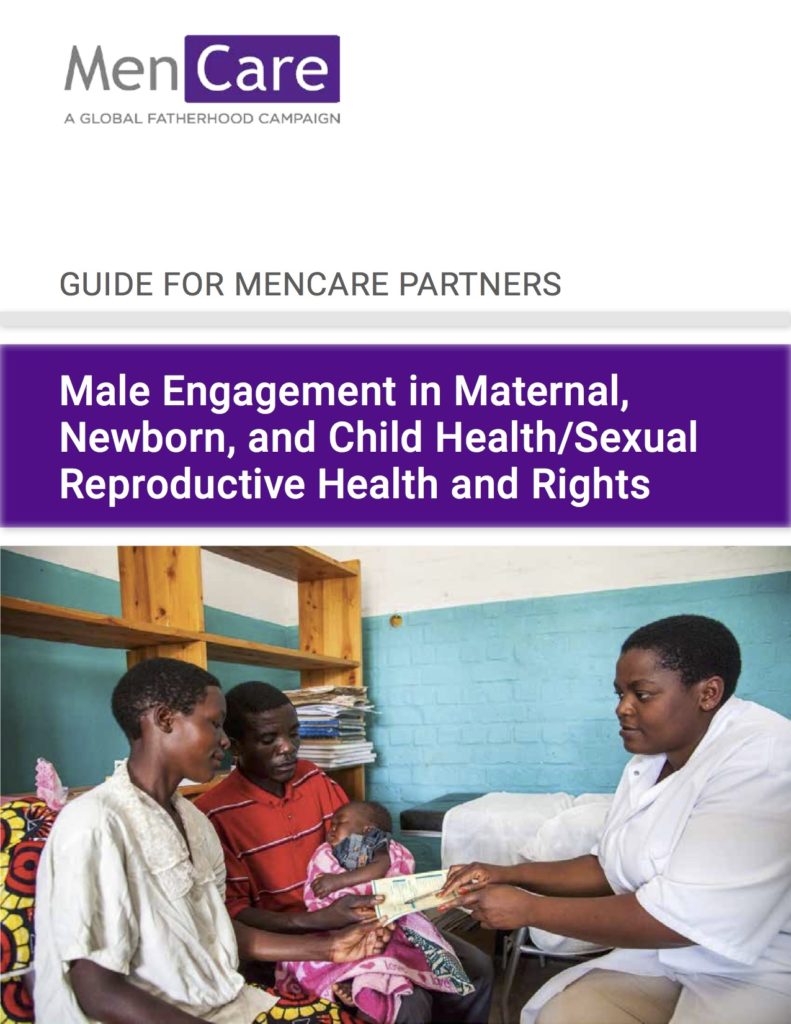 MenCare’s global co-coordinator Equimundo adapted a series of guides for use by MenCare partners around engaging men in maternal, newborn, and child health (MNCH), in sexual and reproductive health and rights (SRHR), and in gender equality.
MenCare’s global co-coordinator Equimundo adapted a series of guides for use by MenCare partners around engaging men in maternal, newborn, and child health (MNCH), in sexual and reproductive health and rights (SRHR), and in gender equality.
The series consists of practical, how-to guides that include step-by-step processes and worksheets to help guide partners’ work to challenge and change harmful gender norms through comprehensive approaches. The guides are widely applicable and easily adaptable across a variety of thematic areas of work, providing partners with the tools to develop skills and action plans for their communications, advocacy, and engagement with key stakeholders.
The guides outline the rationale for and approaches to engaging men in MNCH and SRHR, providing best practices for designing and implementing male engagement interventions, and for driving targeted advocacy and outreach efforts.
Each guide focuses on a different approach or entry point for engaging men in MNCH, SRHR, and gender equality, these resources are:
- General Guide for MenCare Partners
- Communications Guide for MenCare Partners
- Advocacy Guide for MenCare Partners
- Guide for MenCare Partners on Training Health Providers
- Guide for MenCare Partners on Working with Religious and Traditional Leaders
A few questions to consider, when adapting messaging and approaches, include: What do men want to learn, to become better fathers or partners? How do women want, or not want, men to be involved in MNCH and SRH?
There is growing recognition that men’s thoughtful involvement and support during pregnancy and beyond can contribute to MNCH and SRHR outcomes, and to advancing to gender equality. Engaging men as fathers during pregnancy can be a positive entry-point to improving women’s and children’s health as well as couple relations and communication, particularly around family planning and contraceptive use. Men’s greater involvement in MNCH can also open opportunities to improve men’s own sexual and reproductive health, disrupt intergenerational cycles of violence, and promote men’s roles as advocates for SRHR and gender equality more broadly.
The guides were originally developed by Plan International Canada and Equimundo for the Strengthening Health Outcomes for Women and Children (SHOW) Program, funded by Global Affairs Canada.